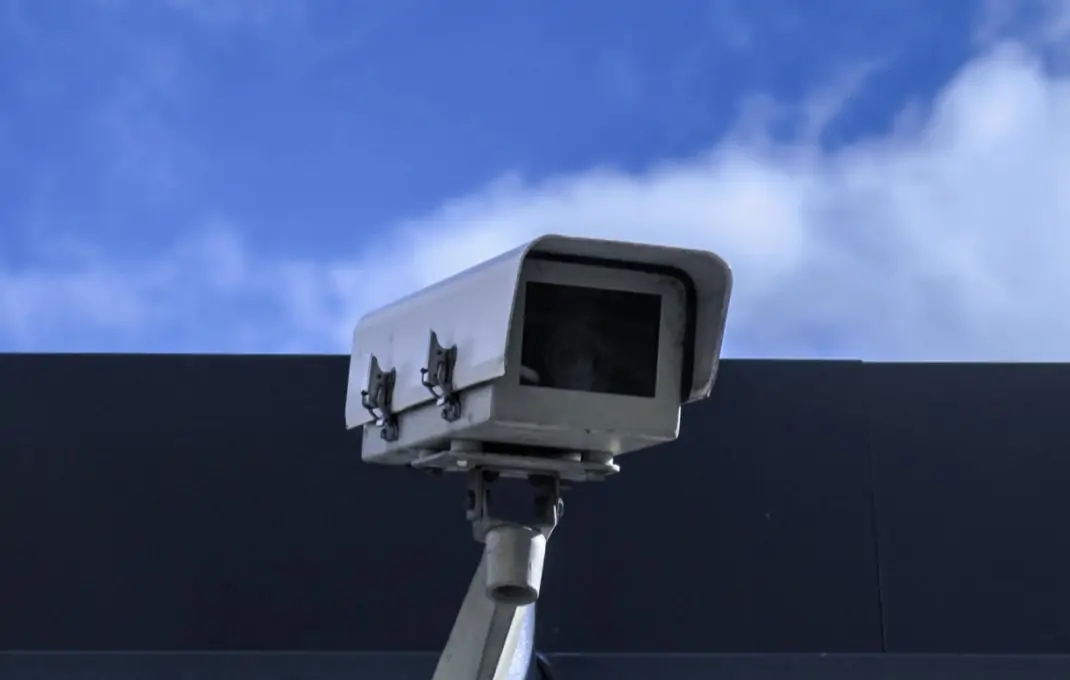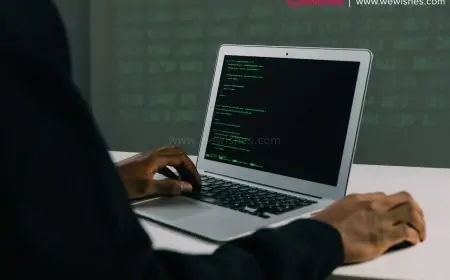Installing domestic CCTV can be a great way to increase the security of your home and give you peace of mind. However, it's important to know what you're doing before you start the installation process. Here are a few things you need to know about installing domestic CCTV.
First and foremost, it's important to understand the laws and regulations surrounding CCTV installation in your area. Different countries and even different states or provinces may have different rules about where and how CCTV cameras can be installed. It's important to do your research and make sure you're following all of the applicable laws and regulations.
Another important consideration is the placement of your CCTV cameras. You'll want to choose locations that provide the best possible coverage without violating anyone's privacy. It's also important to consider factors like lighting and potential obstructions, as these can affect the quality of your footage. By taking the time to carefully plan your camera placement, you can ensure that you get the best possible results from your CCTV system.
-
Legal Considerations
-
System Planning
-
Equipment Selection
-
Installation Process
-
Data Management and Storage
-
Enhancing Security Measures
Legal Considerations
When it comes to installing domestic CCTV, there are several legal considerations that must be taken into account. Failure to comply with these regulations could result in legal action being taken against the homeowner or installer.
Data Protection Laws
One of the most important legal considerations is data protection laws. The homeowner must ensure that they comply with the General Data Protection Regulation (GDPR) and the Data Protection Act 2018. This means that any personal data captured by the CCTV system must be processed lawfully, fairly and transparently. The homeowner must also ensure that they have a legitimate reason for using the CCTV system and that they inform individuals that they are being recorded.
Privacy Laws
Another important consideration is privacy laws. The homeowner must ensure that the CCTV system does not infringe on the privacy of others. This means that the cameras must not be pointed towards areas where individuals have a reasonable expectation of privacy, such as inside their homes or gardens.
Signage
It is also important to display signage to inform individuals that they are being recorded. The signage must be clearly visible and contain information about the purpose of the CCTV system and who to contact if individuals have any concerns.
Access to Footage
The homeowner must also ensure that they have appropriate security measures in place to protect the footage captured by the CCTV system. They must also ensure that they only share the footage with authorised individuals, such as the police or their legal representative.
In summary, when installing domestic CCTV, it is essential to comply with data protection and privacy laws, display appropriate signage, and ensure that access to the footage is restricted to authorised individuals.
System Planning
Before installing a domestic CCTV system, it's essential to plan the system carefully to ensure it meets your needs. Consider the following factors:
Purpose
What is the purpose of your CCTV system? Do you want to deter burglars, monitor your property, or keep an eye on your pets while you're away? Knowing the purpose of your system will help you determine the number of cameras you need, their location, and the features you require.
Coverage
Determine the areas you want to cover with your CCTV system. Consider the entry points, vulnerable areas, and blind spots. A site survey may be required to identify the best locations for your cameras.
Type of Camera
Choose the type of camera that best suits your needs. For example, a bullet camera is suitable for outdoor use, while a dome camera is ideal for indoor use. Consider the features you require, such as motion detection, night vision, and remote access.
Recording and Storage
Decide how long you want to keep your footage and the type of storage you need. A hard drive is suitable for short-term storage, while cloud storage is ideal for long-term storage.
Lighting
Consider the lighting conditions in the areas you want to cover. Cameras with infrared capabilities are suitable for low-light conditions, while cameras with wide dynamic range (WDR) are ideal for areas with high contrast lighting.
By considering these factors during the planning stage, you can ensure that your CCTV system meets your needs and provides the necessary level of security for your property.
Equipment Selection
Selecting the right equipment is crucial when it comes to installing domestic CCTV. There are several factors to consider, such as the location of the cameras, the lighting conditions, and the level of detail required.
When choosing cameras, it is important to consider the resolution and frame rate. A higher resolution will provide more detail, but it will also require more storage space. The frame rate is important because it determines how many frames per second the camera can capture. A higher frame rate will provide smoother footage, but it will also require more bandwidth.
It is also important to choose cameras that are suitable for the environment they will be installed in. For example, outdoor cameras should be weatherproof and able to withstand extreme temperatures. Indoor cameras, on the other hand, may not require these features but may need to be discreet and blend in with the surroundings.
In addition to cameras, other equipment such as cables, power supplies, and storage devices should also be carefully selected. It is important to choose high-quality cables that can transmit video signals without interference. Power supplies should be reliable and provide sufficient power to all cameras. Storage devices should have enough capacity to store footage for the required period of time.
Overall, selecting the right equipment is essential for a successful CCTV installation. By considering factors such as resolution, frame rate, environment, and equipment quality, homeowners can ensure that their CCTV system provides the necessary level of security and peace of mind.
Installation Process
Installing domestic CCTV requires careful planning and attention to detail. Here are the general steps involved in the installation process:
-
Determine the best location for the cameras: Before installing the cameras, it's important to identify the areas that need to be monitored. This will help determine the number of cameras needed and their ideal locations.
-
Set up the DVR: The DVR is the heart of the CCTV system. It's responsible for recording and storing the footage captured by the cameras. The DVR should be installed in a secure location and connected to the cameras and a monitor.
-
Install the cameras: Once the locations for the cameras have been identified, they can be installed. The cameras should be mounted securely and positioned to capture the desired areas. It's important to ensure that the cameras are weatherproof and have a clear view of the area being monitored.
-
Connect the cameras to the DVR: The cameras should be connected to the DVR using the appropriate cables. This will allow the footage to be recorded and stored on the DVR.
-
Test the system: Once the installation is complete, the system should be tested to ensure that it's working properly. This includes checking the camera angles, testing the recording and playback functions, and verifying that the system is connected to the internet (if remote viewing is desired).
By following these steps, homeowners can install a domestic CCTV system that provides reliable and effective security for their property.
Data Management and Storage
When it comes to installing domestic CCTV, data management and storage are crucial factors that need to be considered. The footage captured by the CCTV cameras needs to be stored securely and efficiently to ensure that it is easily accessible when needed.
One option for data storage is a hard drive, which can be connected directly to the DVR (digital video recorder) or NVR (network video recorder). Hard drives come in various sizes and can store a large amount of footage, but they can also be vulnerable to failure or damage.
Another option is cloud storage, where the footage is uploaded to a remote server. This option allows for easy access to the footage from anywhere with an internet connection, but it can also be costly and may require a subscription.
It is important to consider the amount of storage needed for the CCTV system, as well as the retention period required by law. It is also essential to ensure that the data is stored securely, with appropriate measures taken to prevent unauthorized access.
Regular backups of the footage should also be made to ensure that it is not lost in the event of a system failure or damage to the storage device. Overall, proper data management and storage are essential for the effective use of domestic CCTV systems.
Enhancing Security Measures
When it comes to installing domestic CCTV, enhancing security measures is a top priority. There are several ways to do this, including:
-
Installing motion sensors: Motion sensors can trigger the CCTV system to start recording, alerting homeowners to potential intruders. They can also be set up to trigger alarms or send notifications to a homeowner's phone.
-
Adding extra cameras: The more cameras you have, the more angles you can cover, and the more likely you are to capture any suspicious activity. It's important to place cameras strategically to ensure maximum coverage.
-
Using high-quality cameras: High-quality cameras can capture clearer images and footage, making it easier to identify potential intruders. They can also be equipped with night vision and other features to enhance their effectiveness.
-
Implementing remote access: Remote access allows homeowners to view their CCTV footage from anywhere, at any time. This can help them keep an eye on their property even when they're away from home.
By taking these steps, homeowners can enhance their security measures and increase their peace of mind. However, it's important to remember that CCTV is just one part of a comprehensive security system, and should be used in conjunction with other measures such as alarms and locks.























